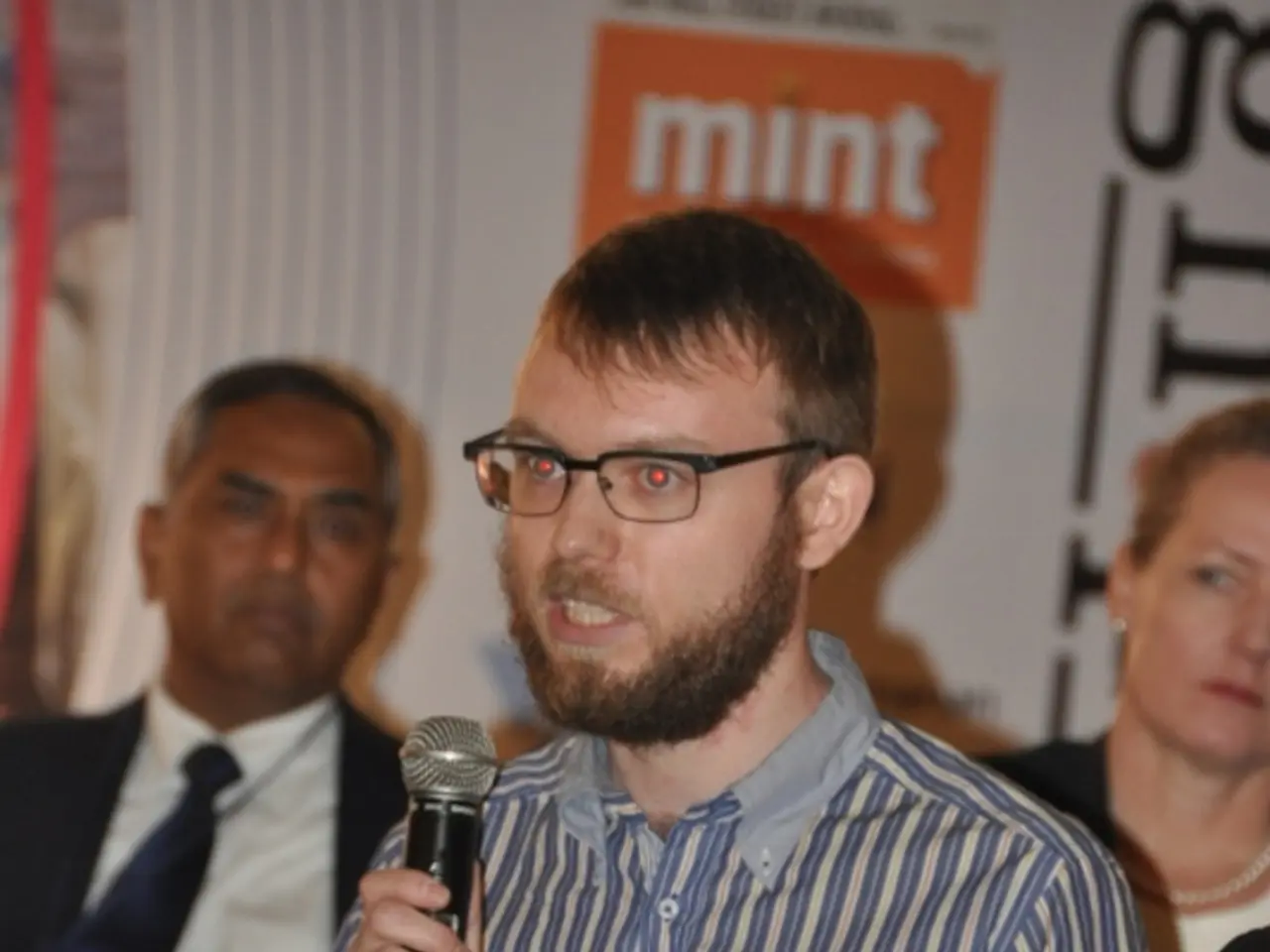Online debate ignited by Soham Parekh's secret night job controversy
In the fast-paced world of tech, the practice of moonlighting - working for multiple startups simultaneously - has become increasingly prevalent, particularly among younger generations like Gen Z. This trend, however, brings complex ethical, productivity, and security challenges that companies must navigate carefully.
Recent studies show a significant presence of moonlighting in India's IT/ITeS sector, with about 45% of employees found to be engaged in concurrent employment or gigs. This reflects a broader shift as Gen Z workers adopt a "multi-stream work mentality," combining full-time jobs with freelance assignments or passion projects for financial resilience and personal growth.
The case of Soham Parekh, an Indian-origin software engineer, has come under scrutiny for allegedly moonlighting. Reports claim that he held concurrent positions at more than one startup, leading to overlapping responsibilities and possible conflicts of interest. The Soham Parekh story serves as a cautionary tale in today's tech world.
Traditional company policies often prohibit moonlighting to avoid conflicts, protect intellectual property, and ensure full employee focus. However, modern approaches are evolving to accommodate flexible work practices. Organizations are advised to revise employment contracts and confidentiality clauses to be legally sound and relevant to current realities while focusing performance evaluations on outcomes rather than hours worked.
Employers can foster trust-based cultures, encouraging open communication and transparency about outside work, and setting clear guidelines on allowable concurrent engagements to mitigate risks. Some large organizations explore offering sanctioned freelance or side projects within their ecosystem or partner firms, reducing risks related to data privacy and intellectual property leakage while enhancing employer branding and talent retention.
Tech-enabled background checks and employee monitoring are being deployed to detect and manage moonlighting activities promptly to avoid compromised performance or data security incidents. The Soham Parekh case, however, raises questions about the rules of engagement in an era of distributed workforces and rising gig culture.
The tech community has shown divided opinions about moonlighting, with some criticizing it as dishonest and others extending empathy. In a recent statement, Soham Parekh appeared to acknowledge the allegations against him. Following the exposure, he reportedly returned to Silicon Valley. A startup leader has offered him a new role, stating that "everyone deserves a second chance."
This case highlights the broader conversation around remote work ethics, multiple gigs, and transparency in startup culture. As the tech industry continues to evolve, striking a balance between flexibility and ethical practices will be crucial for both employees and employers.
- In the growing gig economy, Gen Z workers are adopting a multi-stream work mentality, combining full-time jobs with freelance assignments or passion projects for financial resilience and personal growth, as seen in the IT/ITeS sector of India.
- Companies must navigate the ethical, productivity, and security challenges posed by moonlighting, which can lead to overlapping responsibilities and conflicts of interest, as demonstrated by the case of Soham Parekh, an Indian-origin software engineer.
- To strike a balance between fostering a culture of flexibility and promoting ethical practices, organizations can revise employment contracts, encourage open communication about outside work, set clear guidelines on concurrent engagements, and even offer sanctioned freelance projects to enhance employer branding and talent retention.




